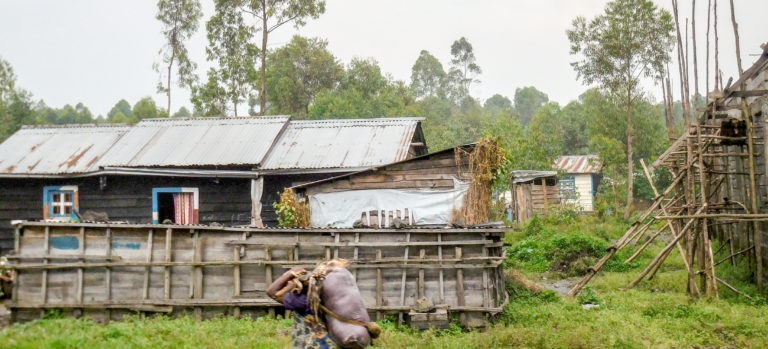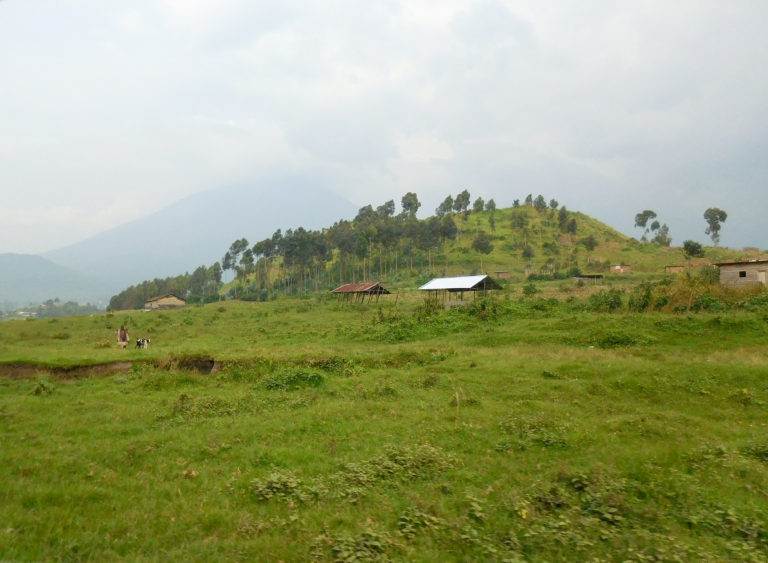How does access to agricultural commodity prices affect price stability and market connectivity in North Kivu, DRC?
Most staple crops in North Kivu are sourced from farmers and depots in nearby towns and villages, with market information being shared primarily through informal networks across relatively short distances. The Center on Conflict and Development at Texas A&M University is collaborating with a local university (Université Catholique du Graben, or “UCG”) to examine whether broadcasting market prices publicly across long distances has potential to smooth local-level price shocks and increase market access to traders and other actors who are traditionally excluded from local agricultural trading.

Step 1: Collect Market Prices
Faculty from UCG in Butembo, North Kivu work with ConDev field personnel in the DR Congo and two local agricultural NGOs to train and supervise local women who collect the prices each week (of four bulk commodities: maize, dried cassava and two varieties of beans) in eight different markets in North Kivu. The precursor to this part of the project was the DRC: Virunga Market Tracking study, which involved the more general collection of market information in the province.
Step 2: Share Market Information via Radio
In the second stage of the project, market prices are shared weekly via local radio stations in Butembo and Beni.
Listen to a broadcast here! (in Swahili)
After the opening song, you can hear the market prices being shared.
One of ConDev’s local field professionals, Robert Kahumula, works with UCG Prof. Emmanuel Musongora Syasaka as well as an Agronomy student to design the weekly radio broadcast.
Project Management and Utility
Robert worked with ConDev program coordinators to carry out a baseline assessment of the local transport market for the four target commodities, and he will carry out a follow-up assessment after six months. He will, furthermore, work with Professor Syasaka to prepare a final report regarding the qualitative impacts of the project. ConDev will use the market prices to assess the stability of the market, both before and during the intervention.

FAQs
Where are prices collected, more specifically?
- Prices are collected from bulk traders at depots in Butembo and Beni town, as well as depots in three rural markets each outside of Butembo and Beni.
What’s your methodology?
- All of the eight markets are within range of the these primary radio stations, so the experimental design will incorporate ‘control’ markets by leaving out 4 of the rural markets during the price dissemination phase (Step 2).
What department(s) will the UCG professor and student hail from?
- At least one will come from the Department of Economics, while one will come from the Department of Agronomy.
What information is being shared via the radio broadcasts?
- Each week, the broadcasts will share the bulk commodity prices for the four tracked items in the four ‘treatment’ markets.